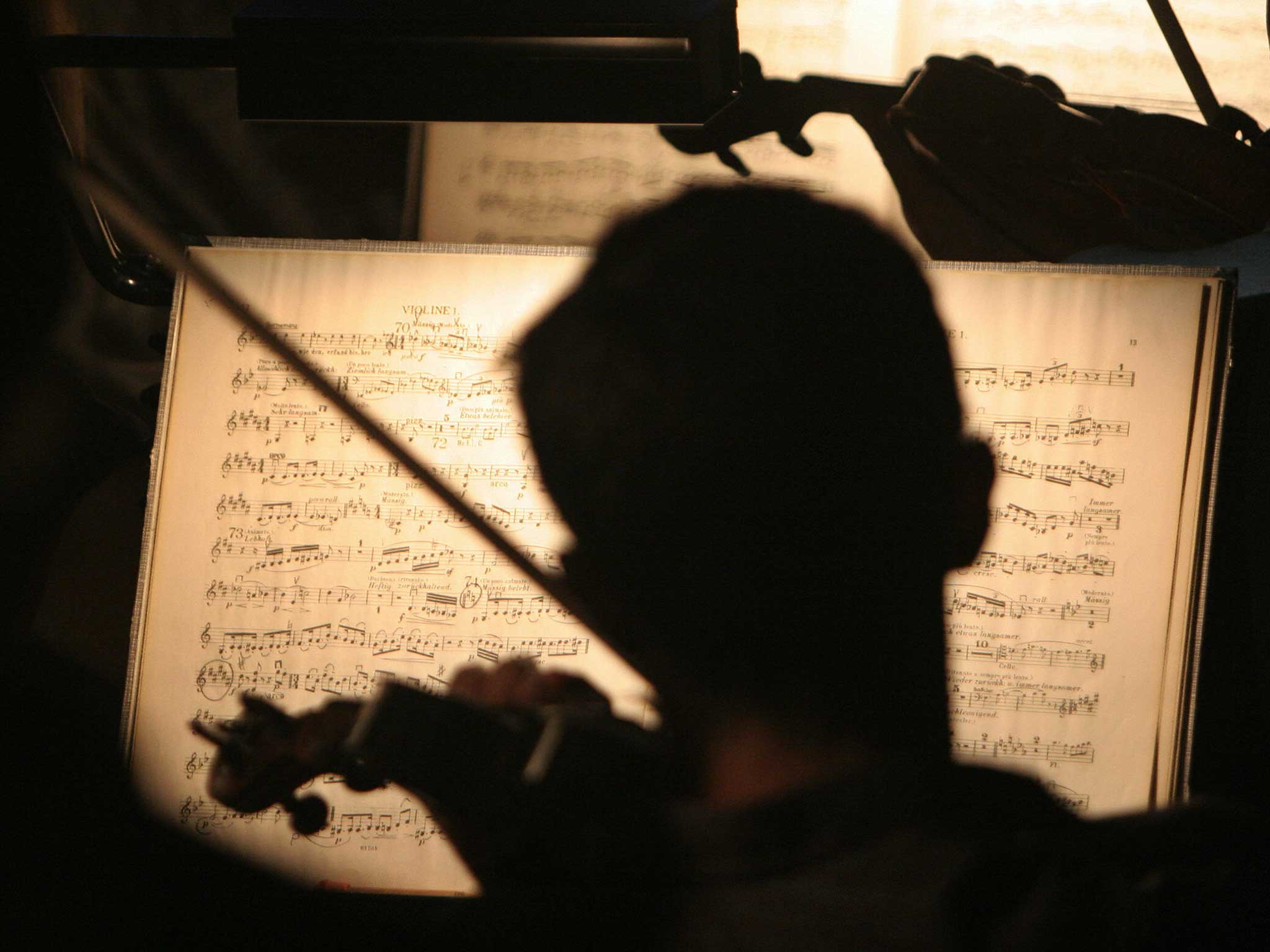Music lessons in schools at risk unless government funds teacher pay rise, councils warn
'We are in danger of music becoming the preserve of families who can afford private tuition'

Music lessons in schools could be under threat if the government refuses to step in and fund a pay rise for music teachers, councils have warned.
A pay rise for classroom teachers, announced in July, will not apply to staff employed directly by councils - of which the majority provide music tuition, the Local Government Association (LGA) said.
Instead, councils would be forced to reduce the services of centrally employed teachers (CETs), such as music tutors, if they were asked to meet the cost of an additional pay rise of one to 2.5 per cent, it added.
The LGA, which represents 370 councils in England and Wales, is now calling on the government to fund the pay rise for CETs, estimated to be £5.5m.
They said stretched councils cannot take on the cost.
Currently there are nearly 5,000 CETs who either provide direct teaching to children, or who play key roles in supporting education professionals. At least half of them teaching music.
Primary schools often bring in music teachers for whole school and classroom work, while tutors are also brought in to teach instruments. Schemes often waive or lower fees to low income families.
Anntoinette Bramble, chair of the LGA’s children and young people board, said: “The UK has a proud history of musical excellence and many of the most well-known artists in the world over time would have benefited from music lessons. For many young people, it is a vital part of their education and future life opportunities, but this could be at risk unless the government commits to fully funding the pay increase for all classroom teachers, including music teachers.”
Already a number of cuts have been made to music provision in schools due to a squeeze on budgets and accountability performance measures which focus on more traditionally academic subjects.
Last month singer songwriter Ed Sheeran spoke out against cuts to music education. He said that he benefited from the tuition he received as a pupil.
At the time, Sheeran, who attended a state secondary school in Suffolk, said: “If you keep cutting the funding for arts you're going to be damaging one of Britain's best and most lucrative exports.”
The LGA warning came as a new study from the University of Sussex finds that an increasing number of secondary schools have reduced or removed music in the curriculum for students in Years 7 to 9.
Asked about the new report, Geoff Barton, general secretary of the Association of School and College Leaders, told The Independent: “The last thing that we need is any more pressure on the provision of music in schools.”
He added: “Local authorities clearly cannot afford additional costs on strained budgets and this will inevitably mean cuts. We are in danger of music becoming the preserve of only those families who can afford private tuition.”
Horace Trubridge, general secretary of Musicians’ Union, added that his path owed "so much to the government of the day in the 1960s that made sure that all kids, no matter how humble their roots, had the opportunity to learn a musical instrument."
He said: "It seems to me that we are now entering into an era in our profession when only a very narrow social stream of young people will make up the musicians of tomorrow. How will the tradition of fantastic bands and artists rising up from the housing estates and low-to-no income families continue?
"Bands like Madness, Pulp, Manic Street Preachers and so many others with great stories and real, honest social messages to sing about. How will the UK’s wonderful orchestras fulfil the demands of the funding bodies to increase diversity within their ranks, when the very people that they want to attract are denied access to music education."
Richest musicians in UK and Ireland
Show all 9Andria Zafirakou, winner of the $1m (£772,000) Varkey Foundation’s Global Teacher Prize, said: “Policy makers need to wake up to the fact that a good grounding in the arts for all school children - including music, drama, poetry, and painting - is a vital part of their development.
“They help students gain confidence, develop their personalities and actually go on to succeed in other subjects, thanks to the lift and boost that exposure to the arts gives them.”
Ms Zafirakou, who is an art teacher in a state school in London, added: “The LGA is right to raise this concern and warn of the risks as we must prevent a further erosion of teacher pay and any reduction of music education.”
A Department for Education spokesperson said: “We have provided schools with over half a billion pounds to allow them to increase the pay of a classroom teacher on the main pay scale by up to 3.5 per cent. Paying this directly to schools on a per pupil basis is the quickest and simplest way of getting the money to them.
“The number of teachers centrally employed by councils represents around one per cent of the teaching workforce and we are in discussions with a range of stakeholders, including the Local Government Association, about this issue. Our £300million music hubs programme is ensuring every primary or secondary school pupil has the opportunity to learn to play an instrument. We are considering how the pay rise affects those teachers employed as part of the scheme.”
Subscribe to Independent Premium to bookmark this article
Want to bookmark your favourite articles and stories to read or reference later? Start your Independent Premium subscription today.

Join our commenting forum
Join thought-provoking conversations, follow other Independent readers and see their replies